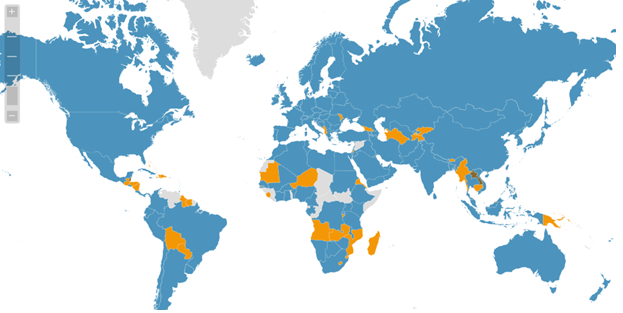From the Item Bank |
||
The Professional Testing Blog |
||
International Standards Organizations: Defining ISOFebruary 10, 2016 | |Professional certification bodies can do more than demonstrate conformity to international standards for the certification of persons. They can get involved with setting those standards. The world’s largest developer of voluntary international standards is ISO. What is ISO? ISO is the International Organization for Standardization. ISO is an independent, non-governmental organization comprised of 162 national member bodies. Founded in 1946 when a group of 25 countries met to create an organization “to facilitate the international coordination and unification of industrial standards” (1997, ISO, Friendship Among Equals: Recollections from ISO’s first 50 years), ISO brings together experts to develop consensus-based, voluntary and market-relevant International standards. Based in Geneva, Switzerland, ISO has published over 19,000 international standards covering almost everything. ISO explains its name by stating, “Because ‘International Organization for Standardization’ would have different acronyms in different languages (IOS in English, OIN in French for Organisation internationale de normalisation), our founders decided to give it the short form ISO. ISO is derived from the Greek isos, meaning equal. Whatever the country, whatever the language, we are always ISO.” (ISO, Website: http://www.iso.org/iso/home/about.htm ). ISO’s members are a network of national standards bodies for which there is one per country and the body represents ISO in its country. Individuals or companies cannot be members of ISO. Examples of national standards bodies include the American National Standards Institute (ANSI), the Standards Council of Canada (SCC), and the British Standards Institute (BSI). ISO’s members are involved in the operation of ISO through a once a year “General Assembly” which is managed by ISO’s Secretary General and ISO’s staff of more than 150 full time employees. Day to day operations are also managed from the Geneva office. Additionally ISO’s members are active in the operations of ISO by serving on Technical Committees who are developing standards as well as on governance committees. The following map illustrates the involvement in ISO by country with the blue countries representing ISO member bodies:
ISO International Standards provide specifications for products, services, systems and persons and are designed to ensure quality, safety and efficiency. By having standards, international trade is facilitated. When a standard is developed, an organization can choose to voluntarily use the standards or, in some cases, can choose to be certified as meeting the standard. Certification of products, services, systems and persons are conducted by certification bodies also known as conformity assessment bodies. ISO has a conformity assessment committee (CASCO) that develops standards and addresses issues related to conformity assessment. Conformity assessment is a set of processes that demonstrate that a product, service or system meets the requirements of a standard. It is basically comparing the organization against the standard. ISO CASCO develops conformity assessment policy and publishes conformity assessment standards. You can identify a conformity assessment standard because it starts with the number 17. ISO/IEC 17024 Conformity assessment — General requirements for bodies operating certification of persons is an example of an ISO CASCO standard. ISO/IEC 17024 is a conformity assessment standard that contains requirements for Certification Bodies that certify the competence of people. Similarly ISO/IEC 17011 Conformity assessment — General requirements for accreditation bodies accrediting conformity assessment bodies is a conformity assessment standard that contains requirements for bodies that accredit conformity assessment bodies. Examples of accrediting bodies are the ANSI, the SCC, and the United Kingdom Accreditation Services (UKAS). ISO CASCO also has several policy committees including the
The standards activities of ISO and ISO CASCO are designed to promote international standards to ensure that products and services are safe, reliable and of good quality. ISO standards reduce costs by minimizing waste and errors and increasing productivity. And ISO standards help companies to access new markets, level the playing field for developing countries and facilitate free and fair global trade. Participation in International Standards provides opportunities for Personnel Certification Bodies to develop certification programs that meet international standards and facilitates their movement to other countries. Categorized in: Licensing Boards, Regulatory Power |
||



Comments are closed here.